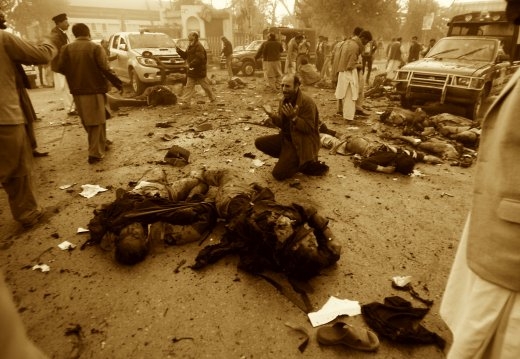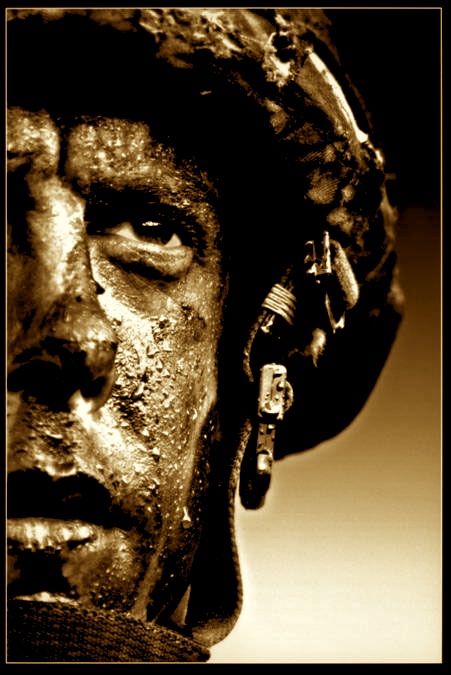
BAGHDAD (AFP) — Insurgents killed eight US soldiers in two separate attacks in 24 hours in Iraq and nine more people died on Tuesday in clashes in the north. In one of the deadliest days for the US military in several months, the insurgents on Monday killed three US soldiers and their translator in the Iraqi province of Diyala where a massive American and Iraqi military sweep has been targeting Al-Qaeda militants. The military, which announced the Diyala incident and casualties on Tuesday, said another soldier was also wounded in the bomb attack. On Monday, five other US soldiers were killed and three wounded in a suicide attack in the once upscale neighbourhood of Mansur in Baghdad, the military said. The Baghdad attack, announced the same day as it occurred, was the deadliest on American troops in two months. ” Five US soldiers were killed today when their dismounted patrol was struck by a suicide bomber. Three US soldiers and an Iraqi interpreter were wounded as well,” military spokesman Lieutenant Michael Street said. The latest deaths bring the US military’s death toll since the March 2003 invasion to 3,983, according to an AFP tally based on independent website www.icasualties.org. MORE
 RELATED: Adm. William J. Fallon, the top American commander in the Middle East whose views on Iran and other issues have seemed to put him at odds with the Bush administration, is retiring early, the Pentagon said Tuesday afternoon. But despite the warm words from Mr. Bush and Mr. Gates, there was no question that the admiral’s premature departure stemmed from a public appearance of policy differences with the administration, and with Gen. David H. Petraeus, the American commander in Iraq. Admiral Fallon had rankled senior officials of the Bush administration with outspoken comments on such issues as dealing with Iran and on setting the pace of troop reductions from Iraq — even though his comments were well within the range of views expressed by Mr. Gates. Officials said the last straw, however, came in an article in Esquire magazine by Thomas P. M. Barnett, a respected military analyst, that profiled Admiral Fallon under the headline, “The Man Between War and Peace.” The article highlighted comments Admiral Fallon made to the Arab television station Al Jazeera last fall, in which he said that a “constant drumbeat of conflict” from Washington that was directed at Iran and Iraq was “not helpful and not useful. I expect that there will be no war, and that is what we ought to be working for. We ought to try to do our utmost to create different conditions.” MORE
RELATED: Adm. William J. Fallon, the top American commander in the Middle East whose views on Iran and other issues have seemed to put him at odds with the Bush administration, is retiring early, the Pentagon said Tuesday afternoon. But despite the warm words from Mr. Bush and Mr. Gates, there was no question that the admiral’s premature departure stemmed from a public appearance of policy differences with the administration, and with Gen. David H. Petraeus, the American commander in Iraq. Admiral Fallon had rankled senior officials of the Bush administration with outspoken comments on such issues as dealing with Iran and on setting the pace of troop reductions from Iraq — even though his comments were well within the range of views expressed by Mr. Gates. Officials said the last straw, however, came in an article in Esquire magazine by Thomas P. M. Barnett, a respected military analyst, that profiled Admiral Fallon under the headline, “The Man Between War and Peace.” The article highlighted comments Admiral Fallon made to the Arab television station Al Jazeera last fall, in which he said that a “constant drumbeat of conflict” from Washington that was directed at Iran and Iraq was “not helpful and not useful. I expect that there will be no war, and that is what we ought to be working for. We ought to try to do our utmost to create different conditions.” MORE
